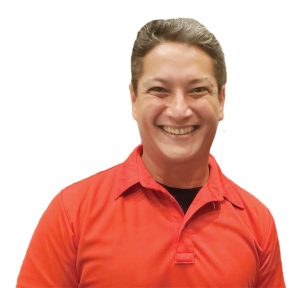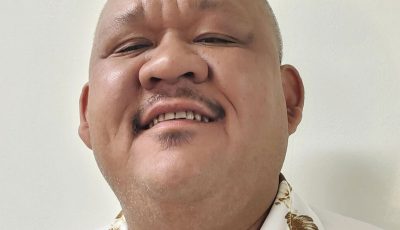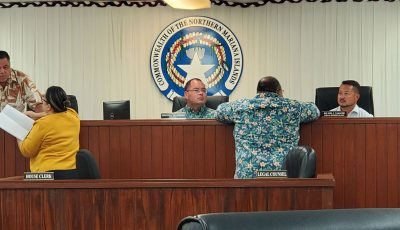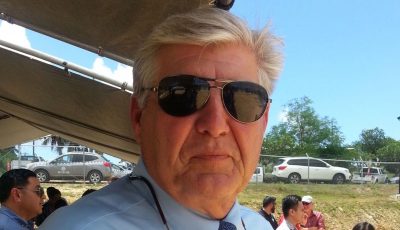House committees find that $17M appropriated to BOOST
The Torres administration allocated a total of $17 million to its Building Optimism, Opportunity and Stability Together, or BOOST Program, and there is an additional request for $20 million, and that the administrator of the program, Bank of Saipan, applied for and received $250,000 in BOOST money.
These were some of the initial findings of the Ways and Means Committee and Judiciary and Governmental Operations Committee of the House of Representatives in their initial review of BOOST documents they procured via subpoenas to different agencies, entities and individuals.
This developed as William “Wil” Castro, who is chief of staff of the Office of the Governor, was compelled, through a subpoena, to testify before the committees’ joint meeting about the BOOST Program in the House chamber Friday. Castro will resume his testimony this morning, Monday.
Castro said the BOOST Program was initially conceived in concept between November of 2021 and February 2022.
In response to House vice speaker Blas Jonathan T. Attao’s (Ind-Saipan) questions, Castro said that, based on letters from Finance Secretary David DLG. Atalig, an additional $6 million in addition to the initial $11 million has been appropriated or allocated to the BOOST Program.
“So in summation that would bring us to approximately $17 million, to the best of his knowledge,” Castro said.
Attao said the original source was $11 million, then Atalig requested $6 million, then there is an additional request of $20 million that shall be reserved for the BOOST Program. “So that’s a total of $37 million for the BOOST Program,” Attao said.
Castro said the additional request for funding is news for him if, in fact, that was the “executive will” to infuse an additional $20 million. “I am not privy to that. But my reaction will be that’s a great thing,” he said, adding that, regardless of who the sitting governor is, the program would be a tremendous benefit to the community.
Attao said he wants to state for the record that there’s a spending plan, but there’s also a moving of an additional $27 million that has not been approved by the U.S. Department of Treasury.
As to who decided how much funding to allocate to the program, Castro said he would suspect that Atalig is the authorized signatory for and on behalf of Gov. Ralph DLG Torres.
“So I would have to assume, although I stand to be corrected, that it would be the [Finance] secretary, upon the advice and consent of the governor,” he said.,
On the funding source, Castro read a Sept. 23, 2022, letter by Atalig which states that the source of funding is the American Rescue Plan Act Coronavirus State and Local Fiscal Recovery Funds, otherwise known as the ARPA or CSLFRF.
Castro said he is a member of a review panel and that his job is to review the BOOST applications and to confer with his colleagues, who also sit on the review panel, in order that they are in a sound position to make a recommendation on a list of applicants for review and approval by the governor.
Castro said the BOOST Program was initially conceived as a low- to no-interest bearing program that would be administered through one or more banking institutions in the Commonwealth.
Upon further review and due diligence by Atalig, Castro said they received feedback from the U.S. Department of Treasury that under no circumstances shall these funds be used to subsidize a loan or any kind.
“That was the genesis of engaging one or more banks. Then we figured that it would make great sense as a matter of quality control, to have an extended party outside of the Office of the Governor primarily to be a part of the process for the purpose of vetting and ensuring that the applications or the applicants in this regard are in compliance for the basic requirements as outlined in the BOOST Program,” Castro said.
He disclosed that there is currently an initiative underway known as the BOOST Workforce Development Program, in which this week they are training the first dozen 50 applicants who may be employed through these BOOST funds. He said this is to provide further assistance to small businesses or non-profits, using the same source of funding. Castro said the budget is under half a million dollars at this point.
He said there is another element that is still being conceptualized—the BOOST Small Business Center. He said the concept is that these beneficiaries of the BOOST Program and others who may benefit from this Small Business Center venue and the services and product provided therein may avail themselves of it.
“The concept is there would a central conference room, state-of-the-art facility,” he said.
Castro said he does know when the $6 million was added to the program and that Atalig would be the best source for any questions relative to these fiscal matters associated with BOOST.
Castro agreed with Rep. Edwin K. Propst (D-Saipan) that there are 241 businesses that were awarded, for a total sum of about $10.4 million. He said the program was extended for others to apply on two occasions.
The chief of staff said there are 4,000 applicants for the entire BOOST Program.
Propst said 241 businesses got about $11 million and if there are still $5 million left, there are 3,000 or so applicants.
“If you look simply at the numbers, how much is actually left for these business applicants? Why was it extended if the amounts were already way over what could possibly be ever invested in these businesses?” Propst asked.
Castro said he doesn’t have enough information about the fiscal state of affairs associated with either the government or the program.
Castro explained how an application can be submitted to BOS, and the respective roles of the bank as administrator, the reviewing panel, and Torres, who has the final approval authority of the application.
He clarified that BOOST money is a grant and not a loan.
As to how BOS get the contract to administer the program, Castro said the bank has the infrastructure, the necessary expertise, infrastructure of accountants, and other professionals that are in the best position to conduct due diligence. He said this is to ensure that there is a third party that will make sure that the basic requirements are met.
Castro said he did not have the authority to select the BOS as the administrator, but Atalig has.
He said he does not know if there was a request for proposal to contract the administrator.
To the question if he as a personal relationship with BOS president John Arroyo, Castro said Arroyo is his friend, but he has in no way a personal relationship with him either through filial relationship or through business relationship. “He is my friend, absolutely. But absolutely no business or filial relationship,” he said.
Castro said he does not recall making any recommendation to award the contract to BOS, which according to him, has done an outstanding job. He said he does not know the owners of BOS.
Rep. Corina L. Magofna (D-Saipan) then showed a text message between Castro and BOS employee and BOOST administrator Karen Kalen dated Nov. 18, 2022, where Castro reportedly said he does not forget his friends. When asked what he meant by this, Castro explained that if someone left a favorable impression upon him and his family, and treated them with due respect, he will, unless otherwise abrogated, forever hold that person in the highest regard and esteem.
Castro disagreed that the text message gives an appearance of favoritism.
“So the inference there would be, ‘please, please to the best of your ability, ensure that we are in compliance with whatever is required [by] federal [and] local statutes, in the intent and the spirit of the program.’ That’s what it means,” he said.
In that communication, Kalen thanked Castro for including BOS in the BOOST Program. Castro replied that he does not forget his friends and that Arroyo has been good to him in the past.
JGO chair Rep. Celina R. Babauta (D-Saipan) said that text records obtained from BOS reflect that many of Castro’s friends and family and associates or associates from businesses in Guam were awarded funds under the CNMI Boost Program. Babauta asked Castro if he made a profit in any way.
Castro denied making a profit and asked Babauta which members of his family has benefitted from the BOOST award. “I would challenge the assumption based on the written record that no members of my family has been awarded a BOOST award. I don’t think any member of my family even applied,” he said.
Castro said that, for his own protection—legal and otherwise—could somebody tell him which member of his family had applied for a BOOST grant. Babauta asked if Castro considers in-laws to be family, but Castro clarified that he is not married.
As for the members of the reviewing panel, Castro said the other members are Atalig and Commerce Secretary Edward Deleon Guerrero.
He said Deleon Guerrero, on occasion, does assign Commerce Business Development director Jesus Taisague to serve as his proxy when he is unable to do.
Castro said that, to the best of his knowledge, at no point has Torres asserted himself to remove or add or amend the recommended amounts on the list of names on the ledger.
In response to Rep. Celina Babauta’s question, Castro denied the Shane Villanueva, Perry Inos Jr., Nadine Deleon Guerrero and others have ever sat on the review panel.
As to Rep. Celina Babauta’s question about how BOS, as the administrator of the program, was able to receive a $250,000 grant, Castro said all applications that come through for review are discussed by the panel.
Castro said he does not recall at any time that it was stated that BOS grosses more than $10 million a year or has 250 employees or more, which prevents the bank from applying for the program.
“I don’t believe that BOS has 250 employees, but I could be wrong, but that’s my judgment based on my observation,” he said.
Propst noted that based on the exchange of communications between Castro and Arroyo, Castro previously characterized as rumor that Shane Villanueva received BOOST money. Propst said they, however, found out from documents that there are three companies that applied for grants under Roil Soil Clothing, Roil Soil Market, and Roil Soil Wholesale, which applied for $280,200, $239,200, and $184,300.
“Well, it turns out that, yeah, not Shane Villanueva but Roil Soil. Who does not know that Roil Soil is Shane Villanueva? Very few people and it’s only the president of Bank of Saipan that had no idea,” Propst said.
Castro said he has validated this information with Arroyo and BOS staff and found out that on that date, there was no record written or otherwise of application from Roil Soil Clothing, Roil Soil Marketing, or Roil Soil Wholesale, that had been received.
Nonetheless, Propt said, Roil Soil did apply and that Castro killed the rumor.
Castro said he does not know if the applications of Roil Soils get approved at this point.
He said Villanueva’s marketing firm is responsible for one or more programs within the BOOST umbrella.




























